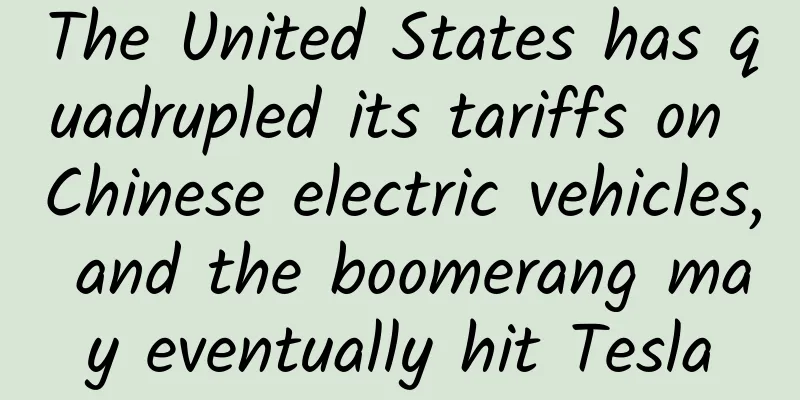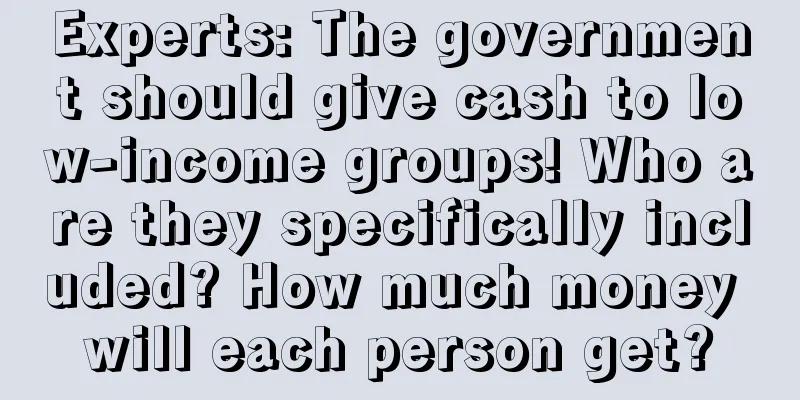The United States has quadrupled its tariffs on Chinese electric vehicles, and the boomerang may eventually hit Tesla

|
On May 14, the shoe dropped and the United States announced additional tariffs on $18 billion worth of Chinese goods, including electric vehicles and lithium batteries, which have received a lot of attention recently. Prior to this move by the United States, the tariff on imported Chinese electric vehicles was only 25%, but it has been increased to 100% after this adjustment. At the same time, all cars imported into the United States will also be subject to an additional tariff of 2.5%. This is a pretty big move, so what impact will it have on China's new energy vehicle industry? Electric vehicles are currently the focus of competition between China and the United States. China, the United States, and the European Union are the three major players in the global new energy vehicle market. In the past 10 years, the top two global new energy vehicle sales champions are BYD from China and Tesla from the United States. It is difficult for other countries to compete with China and the United States. The original purpose of the US imposing tariffs on Chinese electric vehicles was simple, which was to increase the price of Chinese electric vehicles in the US, weaken the competitiveness of Chinese electric vehicles, and buy time for the development of American electric vehicles. Tesla CEO Musk has long said that nothing can stop Chinese electric vehicles except trade barriers. Therefore, the US has quadrupled its import tariff on Chinese electric vehicles at one time, which can be said to be aggressive. From the perspective of the United States, this is understandable, and tariffs are indeed a weapon to combat Chinese electric vehicles. But the problem is that this is a typical empty target shooting, because China exports very few electric vehicles to the United States. Data shows that in 2023, China's exports of new energy passenger vehicles to the United States were only 19,000, accounting for only 1% of total exports. In the first quarter of 2024, this proportion fell to 0.7%. Not only that, BYD and other Chinese new energy manufacturers have long declared that they will give up the US market. With Huawei's experience, domestic manufacturers are no longer willing to deal directly with the United States. So far, the most famous electric vehicles exported by China to the United States may be BYD's electric buses, but this has little impact on BYD. China does not export many electric vehicles to the United States, but the United States has imposed shocking tariffs on Chinese electric vehicles. This is a ridiculous political game played by the United States. Chinese new energy vehicle manufacturers do not rely on the US market, but are still doing well in other markets around the world. Whatever the United States does, it will not have much impact on China's new energy vehicle industry. When the city gate is on fire, the fish in the pond will be affected. In fact, the one most affected by this US policy is not the Chinese manufacturers, but Tesla. The United States knows that the additional tariffs will not affect Chinese manufacturers who have already given up the US market, but this time the tax increase policy is not only aimed at electric vehicles, but also at power batteries. According to the official statement of the United States, the tariff on power batteries exported from China to the United States has also increased from 7.5% to 25%. However, China also exports very few power batteries to the United States. CATL is the world's largest power battery manufacturer, but its exports to the US market account for only a single digit. In theory, the United States is also shooting in the dark in the field of power batteries. However, if the United States introduces further policies, such as banning the sale of new energy vehicles equipped with Chinese power batteries in the U.S. market, it will cause considerable trouble for Tesla. CATL is Tesla's main battery supplier. The cooperation between the two parties began in 2020, and the relationship has always been relatively stable. If CATL's batteries are banned, it will cause great trouble to Tesla. Tesla is now in a quagmire. In the first quarter of 2024, Tesla's cumulative deliveries were only 386,000 vehicles, down 8.5% year-on-year, falling back to the level of the second half of 2022; in the Chinese domestic market, Tesla's market share in the first quarter was only 7.5%, which is already less than Geely Auto. At the same time, Tesla's global production system has also encountered great troubles. The progress of the super factory in the United States has not been as expected, and the super factory in Berlin, Germany has also been in trouble. Some time ago, it encountered protests from thousands of local environmentalists. Musk was forced to import parts from China and transport them to the Berlin factory for assembly. Facts have proved that "If China can do it, so can I". It is an illusion that most countries in the world cannot achieve China's production efficiency. In this case, what Tesla needs most is a stable supply chain, which can reduce costs. If the United States introduces more stringent sanctions against Chinese batteries, Tesla will be severely impacted. The United States is the world's largest economy and a major automobile consumer. Logically, such a market will not be abandoned by aggressive Chinese manufacturers. But the fact is just the opposite. When it comes to entering the US market, Chinese manufacturers have long declared that they will "lay flat". BYD has been the global sales champion of new energy vehicles for two consecutive years, but its presence in the US market is almost zero. In fact, Chinese manufacturers have basically prepared to give up the US market. Rather than being attacked suddenly like Huawei, it is better to give up directly. In other words, this will not cause any major losses to Chinese manufacturers. They can live well without the US market. China's mainstream manufacturers have their own core technologies and a complete local industrial chain, and are not afraid of the small moves made by the United States. Tesla, on the other hand, should think about how to deal with the crazy policies of the United States. China accounts for 60% of the global new energy market share, more than 60% of the power battery share, and more than half of the laser radar share. This advantage will continue for a long time. The United States' empty shooting will only make itself an island in the new energy era and miss the trend of the times. As a winner of Toutiao's Qingyun Plan and Baijiahao's Bai+ Plan, the 2019 Baidu Digital Author of the Year, the Baijiahao's Most Popular Author in the Technology Field, the 2019 Sogou Technology and Culture Author, and the 2021 Baijiahao Quarterly Influential Creator, he has won many awards, including the 2013 Sohu Best Industry Media Person, the 2015 China New Media Entrepreneurship Competition Beijing Third Place, the 2015 Guangmang Experience Award, the 2015 China New Media Entrepreneurship Competition Finals Third Place, and the 2018 Baidu Dynamic Annual Powerful Celebrity. |
<<: The world's thinnest 6.1mm iPad: first review after Apple's new iPad launch
>>: A 5.5-inch phone can buy two 50-inch phones! Coocaa K50 review
Recommend
The peak season for dengue fever is here. You need to prepare in advance for the May Day holiday.
As temperatures rise across the country, mosquito...
Starting from JD.com, Tmall, and Suning’s 618, let’s talk about how e-commerce promotions will develop in the future?
The annual 618 e-commerce promotion is coming. Th...
Is your body exhausted? A table to calculate your fatigue index
Do you have the following symptoms? Your head fee...
Amazon Fire's ambition is not only to be an e-commerce company, but also a platform
Back in January 2007, Steve Jobs released the fir...
Teacher Xueli: English Phonics + Phonetic Symbols + Pronunciation Rules Collection
Course Catalog: ├──1. Teacher Xueli’s high-qualit...
How effective are noise-canceling headphones? Are they truly noise-canceling or just a waste of money?
The rapid development of science and technology h...
Zhihu brand promotion skills and cases
Doing brand promotion can increase your own visib...
Xiaomi's 46 high-definition posters tell you how to do fan marketing
How did Xiaomi achieve rapid development in just ...
Heytea’s operational skills for its tens of millions in private domain revenue!
According to online information, on January 31 of...
28 thoughts on marketing, operations, copywriting, and new media!
1 What is a brand? It seems that there are very f...
"Foreign Language Restriction Order" implemented, video websites turn to self-produced dramas
Foreign dramas often adopt a system of filming wh...
The seven deadly sins of iPhone 6s
It has been almost a month since the new iPhone 6...
Huanwang joins hands with Sofres to transform the smart TV industry with data
With the rapid popularization of smart TV termina...
How will AutoNavi, which claims that it does not manufacture cars, transform the Internet of Vehicles?
Before November 2, if there was any news about Au...









